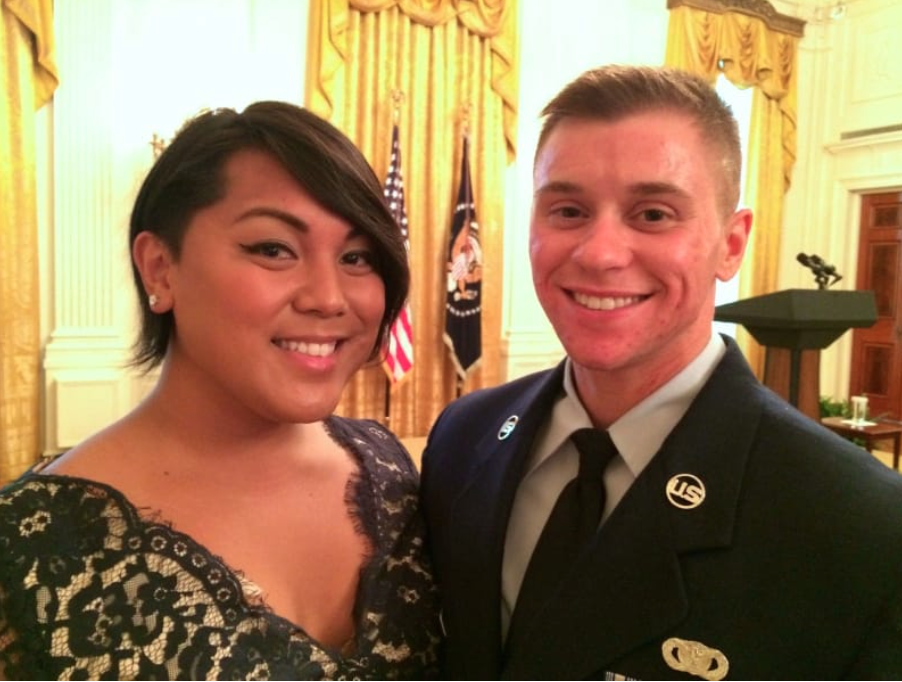
Transgender soldiers were dismayed by a Supreme Court decision Tuesday that sided with President Donald Trump, issuing a ruling that administration officials praised for “clearing the way” to ban most transgender troops from the military.
“Transgender soldiers are waking up and seeing this nation is going to turn their backs on them, and that is a difficult thing to swallow,” Chief Warrant Officer Lindsey Muller, an active-duty Army attack helicopter pilot who also served during the Iraq War, told BuzzFeed News.
“To be told that I’m now a burden, after nearly 19 years of service, it’s really hard to understand,” she said.
“The uneasiness is palpable,” she added, describing phone calls from other transgender soldiers and applicants. “They are terrified.”
The Supreme Court ruled a ban on most transgender people serving in the military could take effect as three cases proceed in lower courts — while leaving another case in limbo — by issuing a stay of three preliminary injunctions.

The Justice Department cheered the decision, echoing a claim from Trump and the religious right that allowing transgender troops "poses a risk to military effectiveness and lethality.”
Still, several transgender service members said Tuesday they will soldier on as long as they can.
“We could be pressured to get out of the military,” said Akira Wyatt, 27, a Navy Corps member who transitioned publicly after the Obama administration lifted a longstanding ban in 2016. “It's very unfair.”
A Pentagon policy released in February 2018 would prohibit transgender people from enlisting or transitioning during their service, but it would retain any transgender people who are already serving. Yet even those people are at risk, Wyatt believes.
“As people who are grandfathered in, we are in danger,” she explained, saying they could be pushed out. “We are basically back in limbo again.”
Muller rejected the argument that transgender soldiers drag down units, saying political attacks and flip-flopping policies in recent years are what’s weakened morale and cohesion — not transgender people. “They should be applauded, not targeted and vilified.”
“Imagine being an attack helicopter pilot and in the back of your head you’re thinking, ‘I could lose my job in a week,’” she said. “It’s extremely distracting.”
The transgender soldiers interviewed for this article were all emphatic about their loyalty to the military — and stressed that they weren’t criticizing the Department of Defense — but lamented their service was caught in a political crossfire.
“As trans people, we have served for two years with honor and dignity," Wyatt said. "There are no words to describe how much pain and suffering we have incurred these past years.”
For now, she said, “I am going to do my job to the best of my ability, I will still serve my country just as I did before.”
In June 2016, the Obama administration lifted a decadeslong ban on transgender service after finding they didn’t harm the military. Trump reversed that decision in 2017, saying that transgender people would render the military “burdened with medical costs and disruption.” Trump formalized the policy in a memorandum that August — but four courts soon issued preliminary injunctions putting the ban on hold.

The policy evolved in February 2018, when former defense secretary James Mattis recommended banning most transgender personnel but allowing those who’d already joined and transitioned to remain in the ranks. Trump rescinded his own 2017 order while officials sought to implement Mattis’s recommendations.
The Supreme Court put injunctions on hold in three of the cases Tuesday. But the court did not address a fourth federal case in Maryland, Stone v. Trump, where a preliminary injunction remains in place. That injunction, however, refers to Trump’s 2017 memorandum, which has been rescinded. The Justice Department is expected to go to court soon, asking to have that injunction put on hold as well.
Lt. Col. Carla M. Gleason, a spokesperson for the Defense Department, told BuzzFeed News “there is no change today” in the Pentagon’s policy, but several Democrats and LGBT groups said the Supreme Court’s decision on Tuesday will let a transgender military ban take effect.
The court’s decision is “definitely disappointing,” Air Force Staff Sgt. Logan Ireland, a transgender man who transitioned under Obama, told BuzzFeed News. “However, all this means is that the incline has been put up a little bit higher. We will still be in this fight.”

“For those currently serving we will continue to serve honorably and respectfully,” he said. “We will pave the way for members like us to serve without any other hurdles in the future.”
His wife, Laila Ireland, a retired Army veteran who is also transgender and works with the advocacy group SPART*A, added, “This is definitely not what we wanted to see happen after all the work that we’ve been doing and all the data and personnel that we have provided.”
Capt. Alivia Stehlik just returned to the United States after nine months as a physical therapist treating soldiers in Afghanistan, where she said being transgender wasn’t an issue.
“To come home, and a week later have this decision at the Supreme Court — while we know this is not over and it's not a final judgment — is disheartening,” said the West Point graduate who has served since 2008.
“It's definitely not fair,” she added. “But to me, life isn't fair. I expect to be challenged and overcome those things. That's what draws people to the military. I’m going to wake up tomorrow and go to work.”
